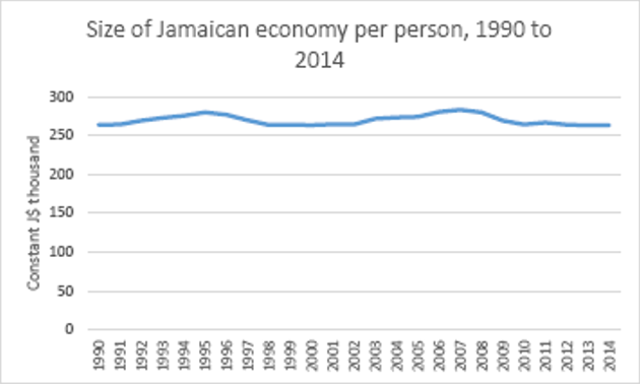Commenting ahead of UK Prime Minister David Cameron’s visits to Jamaica and Grenada this week, Tim Jones from the Jubilee Debt Campaign, said:
“Jamaica has been burdened by an unpayable and unjust debt for the last 40 years. Throughout that time institutions the UK has a large say in governing, such as the IMF, have bailed out reckless lenders whilst forcing austerity on the country. The result has been disastrous, with Jamaica failing to meet most of the Millennium Development Goals which concluded this week. David Cameron should apologise for both the impacts of the transatlantic slave trade and the more recently imposed austerity, and push for a debt cancellation programme to finally end the debt trap of the last 40 years.”

According to the World Bank, since 1980 Jamaica has been lent $17.5 billion from overseas, repaid $20.5 billion but is still said today to have an external debt of $7.5 billion. Jamaica has been in a debt crisis since the late 1970s, spending around 20% of export revenues on external debt payments every year since. Despite this, there has been no discernible fall in the government’s external debt since the late 1990s. Jamaica has followed IMF austerity programmes from 1972 to 1979, 1981 to 1995, 2010-2011 and 2013 to date.
Jamaica has failed to meet six of the seven Millennium Development Goals:
• The Jamaican economy is the same size per person today as it was in 1990.
• The number of people living in poverty has increased from 10% of the population in 2007 to 20%.
• Unemployment is currently over 15%.
• The proportion of children completing primary school fell from 97% in 1990 to 75% by 2009. It has since increased again to 86%, but still well short of the Millennium Development Goal of 100%.
Both the Jamaican government and the Caribbean Community and Common Market (Caricom) have called this year for debt relief for Jamaica and other heavily indebted small islands.
Commenting ahead of the Prime Minister’s visit to Grenada, Tim Jones continued:
“Grenada is in a debt crisis caused by the withdrawal of EU trade preferences for exports, the devastation caused by Hurricane Ivan in 2004 and the fall in tourism during the global financial crisis. Having defaulted on some of its debt, Grenada bravely tried to get all creditors to jointly negotiate on an economic recovery programme, but the UK refused. When in Grenada, David Cameron should apologise for this rebuff, cancel all the debt owed by Grenada to the UK, and push institutions like the IMF and World Bank to do the same.”
Grenada is currently in default on the £1.8 million it is said to owe the UK government’s UK Export Finance. In October 2013 the Grenada government publicly called for a negotiation with all creditors on debt cancellation and economic recovery, which the UK government rebuffed.

